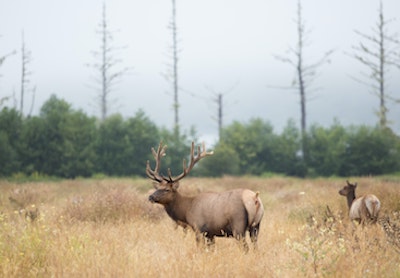What Is Samson’s Law?


Colorado prides itself on its diverse natural wildlife, so it is only fitting that state law acts to preserve and protect it. Hunters must be aware of the various laws around hunting wildlife in the state in order to avoid fines and penalties. One of the more interesting but lesser-known laws that hunters must observe is Samson’s Law. Samson’s law places stiff penalties on those who illegally hunt trophy animals so we can protect the lives and populations of Colorado wildlife. If you are a keen hunter in Colorado, keep reading to find out how this law may affect you.
How Did Samson’s Law Come About?
Estes Park, Colorado was once home to an elk who often visited the nearby townships. He was nicknamed Samson and he was a favorite among the locals. Samson weighed in at 1,000 lbs with a beautiful rack of antlers, designated as seven by nine points. Sadly, in 1995 Samson was illegally hunted and poached for trophy purposes, causing an outcry in the community and across the state.
As a result, the Colorado legislature introduced “Samson’s Law” to deter the illegal poaching of wildlife in the state. This law places extremely harsh fines on those who illegally hunt trophy animals. The state felt it was necessary to place another fine on top of the preexisting penalties to deter poachers from trophy hunting large wildlife species and to avoid an incident such as Samson’s from happening again.
What Are the Penalties Under Samson’s Law?
Samson’s Law is a sentence enhancement which imposes a higher fine for illegally taking and/or possessing certain animals in the state of Colorado. The following list contains the fines for poaching trophy-size animals, according to Colorado Revised Statutes, Wildlife Parks and Recreation section 33-6-109(3.4)(a):
- A $4,000 fine occurs for the poaching of pronghorn antelope with a horn length of 14 inches or more.
- A $10,000 fine occurs for the poaching of any bull moose or mountain goat, bull elks with six or more points on an antler beam, mule deer bucks with inside antler spreads of 22 inches or more, and whitetail deer bucks with inside antler spreads of 18 inches or more.
- A $25,000 fine occurs for the poaching of bighorn sheep with a horn length of one-half curl or more.
Hunting licenses operate on a 20-point violations system, similar to a driver’s license, and violations of certain provisions of Samson’s law may create enough points to have your hunting license suspended. Hunters previously convicted under the law have also served large amounts of community service, and if the violation is severe enough, you may face a permanent ban from hunting in the state.
What Can You Do to Avoid Being Charged Under Samson’s Law?
Presumably, most hunters would want to avoid the hefty fines that can occur as a result of Samson’s law, and there are several measures you can take to ensure you do not find yourself fined. Ensure you are hunting with a proper license and within the correct jurisdiction for the license. Take care to note the size of the animal; due to the aforementioned fact that Samson’s law fines are often guided by the size of the animal’s horns or antlers, this can greatly affect the outcome of your charge.
Finally, do not engage in the poaching of trophy animals. The application of Samson’s law is immediate and automatic, and you will find yourself facing large fines as well as other penalties. Ethical and sustainable hunting is important to Colorado state lawmakers, and it is essential that you abide by the guidelines set out in the law. Accidental kills do occur, and if the animal you took fits within the standards set by Samson’s Law, then you still may be charged.
Schedule a Consultation with Colorado Wildlife Attorney Patrick F. Welsh
If you or someone you know has been fined under Samson’s law, let us assist you. Here at Welsh Law, LLC, our Colorado wildlife attorney Patrick F. Welsh can assist with hunting- and wildlife-related convictions. It is important that you consult with a wildlife attorney before you make any decisions. Call us at (720) 836-1777 for a complimentary 30-minute consultation.
